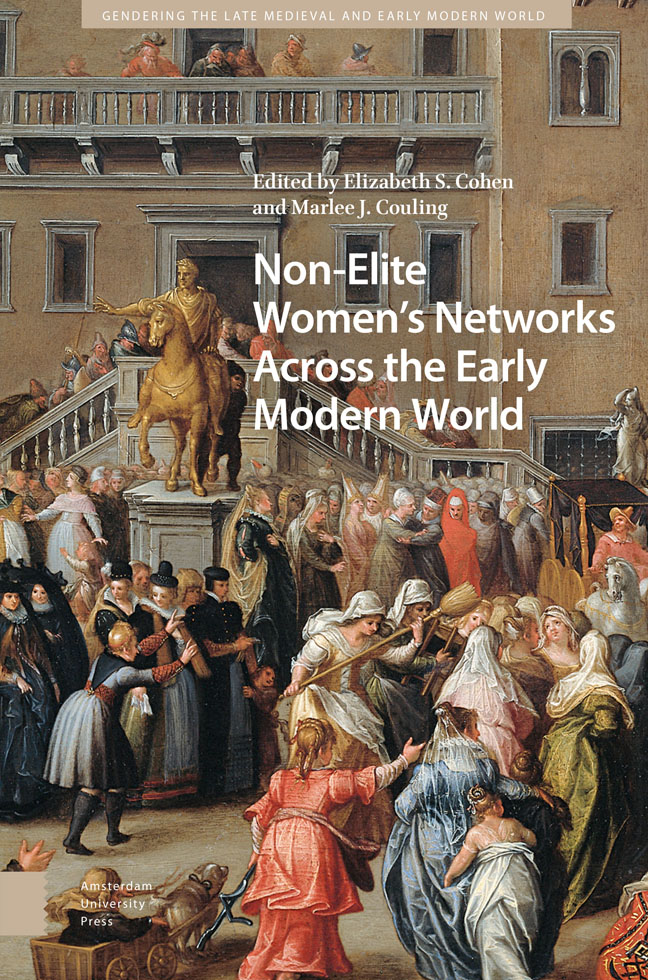9 - “Wall Neighbors,” Mothers-in-Law, and Comadres: Spousal Violence and Networks of Plebeian Female Intimacy and Solidarity in Urban Neighborhoods of Early to Mid-Colonial New Spain (1550–1670)
Published online by Cambridge University Press: 20 February 2024
Summary
Abstract: Studying practices of plebeian female solidarity in early colonial New Spain (1550–1670), this chapter argues that women's networks were central to contesting masculine violence in a context where neither ecclesiastical nor civil law could effectively combat it. Using petitions for ecclesiastical divorce and Inquisition records involving magic, the chapter further contends that masculine violence itself provided an impetus and a catalyst for the formation of female networks of affective solidarity, support, and the exchange of legal and magical information.
Keywords: New Spain, Mexico City, violence against women, solidarity, female networks, plebeians, magic, divorce
In 1614, Mariana de Salas described to Inquisitors of Mexico City's Holy Office how her neighbors attempted to help her combat her husband's abuse with magical remedies using variously a lizard, herbs, black powders, and worms. Testifying in 1649 to episcopal authorities in the same city, Madelena de Abrego detailed confronting her neighbor about his abuse of his wife and being mockingly asked whether Madalena thought she was his mother-in-law. The stories of these and other plebeian women emerge from the records of early modern religious courts: primarily, petitions for “ecclesiastical divorce” (marital separation), and secondarily, denunciations for witchcraft and superstition submitted to the Inquisition. These records demonstrate that in confronting spousal abuse, the women of the towns of early colonial New Spain (1530–1650) built and mobilized local peer networks to access protection and solidarity that institutions did not effectively supply. In turn, as women responded to the particular dangers of spousal violence, their affective bonds were reinforced.
Examining the synergistic relationship between women's networks and their contestation of spousal violence gives us insight into an important dimension of gendered sociability and affect in the early modern world, where spousal violence could be constitutive of women's affective bonds. Gossiping about, challenging, and coping with the violence of male partners brought women together in intimate relationships that both deepened recognized bonds (such as those between mothers and daughters) and forged new ones. Both the affective and the protective benefits of these networks of female solidarity were likely more accessible to town women than to their rural counterparts because of the spatial proximity characteristic of urban neighborhoods; this chapter therefore confines itself to town women.
This chapter relies upon two bodies of documentation.
- Type
- Chapter
- Information
- Non-Elite Women's Networks across the Early Modern World , pp. 207 - 230Publisher: Amsterdam University PressPrint publication year: 2023

